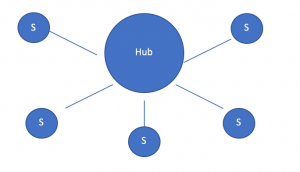
Many employers find that email is one of the biggest time-wasting aspects of the day. It doesn’t take long for the problem to take effect. One minute, your employees are working diligently. The next, a faint buzz from their pocket or a desktop notification lets them know that they’ve got mail. That notification acts on the reward center of many people’s brains, leading them to respond as quickly as possible. Whether they’re waiting on an important email from a client or coworker or simply concerned that the email will contain critical information that will impact the rest of their workday, it must be checked immediately.
Unfortunately, a single email check or even an acknowledgment of that notification can break the flow of an employee’s work. Each time that occurs, it can take as much as twenty-five minutes to get back on track again. If that little notification keeps dinging, pulling your employees away from their work repeatedly, they may spend more time trying to get back on track than they do actually working. Reducing email, therefore, is a high priority for many offices and installing a company intranet is a great way to significantly impact the number of emails that go out each day.
The Employee Calendar
From regular deadlines and end-of-the-month goals to employee cook-offs and upcoming vacation days, the email reminders are endless. HR wants to be sure that every employee in the building knows as much about the upcoming events as possible.  Management, however, just wants to stop the constant flow of emails. Placing an employee calendar on the intranet is a great way to cut down on the emails that go out concerning things that could just as easily be accessed with a few short clicks.
Management, however, just wants to stop the constant flow of emails. Placing an employee calendar on the intranet is a great way to cut down on the emails that go out concerning things that could just as easily be accessed with a few short clicks.
Company-wide calendars will provide all of your users with all the information they need about upcoming events. Having this information readily available doesn’t just reduce the number of emails that will go into your employees’ inboxes, either: it will also significantly reduce the amount of time they have to spend looking for this information, whether by asking other employees or sending out the dreaded, “When is the company picnic, again?” email.
User-specific calendars are designed around the needs of an individual group. Whether that’s a particular project group within your organization that needs access to specific deadlines or a particular department that needs to know key dates, you can customize your calendars, then invite the users who need that information. This allows you to separate important dates so that it doesn’t show up on the calendars of people who don’t need it or to choose to share it with everyone depending on the event in question and the people who need to know about it.
Strong Forums
Collaborative Projects
Employees who are working on a project together aren’t necessarily in the same room anymore. In fact, they may not even be in the same building. Because of that, many critical pieces of project information need to be shared virtually.  Most commonly, they’re emailed. Email, however, is a clunky system that has a number of disadvantages.
Most commonly, they’re emailed. Email, however, is a clunky system that has a number of disadvantages.
- It’s difficult to organize. On all too many occasions, your employees will find themselves desperately searching through their inboxes for a lost email pertaining to a project. In a forum dedicated specifically to the project, it’s much easier to locate the relevant subject and find key information.
- People can be left out accidentally. It just takes the click of a button to send out an email that neglects to include someone within a project. Sometimes, this is a deliberate slight. Other times, it’s a complete (and potentially horrific) accident. By keeping the same information within forums, on the other hand, that information is easily accessible to everyone with access.
- It’s easier to keep private. Just like emails can easily exclude, they can also easily include–often the wrong people. By keeping the information within a forum, it remains closed to all but the individuals who are intended to be able to access it.
Cut the Chatter
How many emails are sent out throughout your company on a regular basis that don’t pertain at all to work? From someone’s dog who had puppies that need new homes as soon as possible to a coworker who had an accident and whose status is shared via email on a frequent basis, there are plenty of off-topic emails that go out throughout the entire company. A company-wide forum for off-topic chatter, on the other hand, accomplishes several purposes.
 It limits the conversation to people who actually want to see it. Instead of a new email popping up in everyone’s inbox every time someone hits “reply all,” the conversation is held to those who are actually interested in it.
It limits the conversation to people who actually want to see it. Instead of a new email popping up in everyone’s inbox every time someone hits “reply all,” the conversation is held to those who are actually interested in it.
- It keeps the off-topic conversations out of sight until each employee is ready to access them. Seeing the conversation appear constantly in their inbox may repeatedly draw employees back to it, but with it tucked away in a forum, it has to be accessed deliberately.
- It’s easier to monitor employee usage. Because you can easily monitor the areas of your intranet that see the most use, you can easily monitor the amount of time that each of them is spending in the off-topic areas and on the forums.
Easily Arrange Events
Who’s bringing what to the potluck next week? Who’s in charge of handling the technology at the upcoming conference? All of these details are important. Communication about them, however, doesn’t necessarily have to take place over email. None of these questions requires an immediate answer, and all of it can be sorted out as employees have time. Including that in the forums instead of doing it through email, therefore, is a much better option for many companies. As an added bonus, each employee will have the option to deal with these event notifications when they have the chance, rather than skimming over an email and deciding that they’ll deal with it later–an action which often results in the big event being forgotten until much later.
News Options
Sometimes, there are big pieces of news that need to be shared throughout your company. From announcements about the next big company-wide contest to information about upcoming openings and other key information, you want to get it out to as many people as possible. Conveying this information through email, however, is clunky and ineffective, not to mention distracting. Instead, consider a news function within your company intranet structure. You can write a company blog to share all of those important announcements or use a news section of the intranet to help engage employees and share important information. The important thing about your news feature is that it needs to work effectively for your company: your intranet should be designed to make the most important functions as easy for your users to access as possible.
Document Storage
 There are plenty of files within your company that are used over and over again. From forms that need to be filled out for every client to critical documents that need to be easy for everyone to access, requests for those documents fill up inboxes fast. Then there are common HR forms, the latest sales brochures, and plenty of other important documents that are needed on a regular basis. Assigning a document storage area to your intranet, on the other hand, is a great way to cut down on the time that employees spend looking for those critical documents. Not only that, a document storage area ensures that your employees are always getting the latest versions of their documents, not the old ones that the person next to them used when they did it. A well-organized document repository makes it easy to find the newest version of those critical documents in a timely manner.
There are plenty of files within your company that are used over and over again. From forms that need to be filled out for every client to critical documents that need to be easy for everyone to access, requests for those documents fill up inboxes fast. Then there are common HR forms, the latest sales brochures, and plenty of other important documents that are needed on a regular basis. Assigning a document storage area to your intranet, on the other hand, is a great way to cut down on the time that employees spend looking for those critical documents. Not only that, a document storage area ensures that your employees are always getting the latest versions of their documents, not the old ones that the person next to them used when they did it. A well-organized document repository makes it easy to find the newest version of those critical documents in a timely manner.
Using a company intranet allows your employees to organize their day more efficiently and effectively. Instead of being bombarded with information through email all day, they’re able to choose the time that’s spent on each aspect of their jobs, particularly those non-critical bits of chatter that so often fill inboxes and make it impossible to find the more important information.
Business & Finance Articles on Business 2 Community(126)









